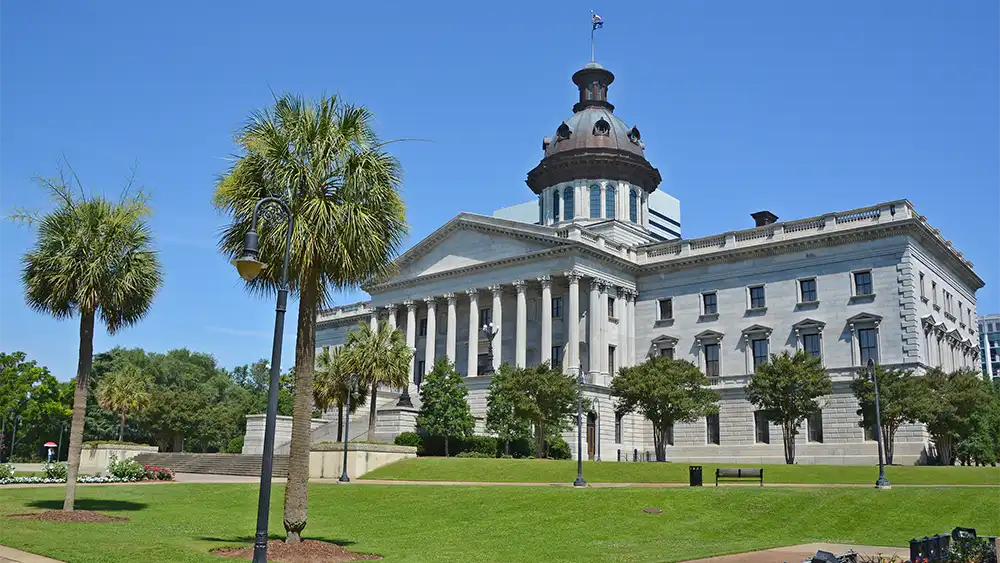
As women in government, the following Lowcountry civic and state leaders have found and amplified their voices, achieving extraordinary accomplishments at the local, county and state levels. By using their political platforms to make a difference, these fearless female legislators have created a beacon of light, brightening the path forward for women in governance as well as other leadership roles.
Town and City
Christiane Farrell, Assistant Town Administrator of Mount Pleasant (2017-present)
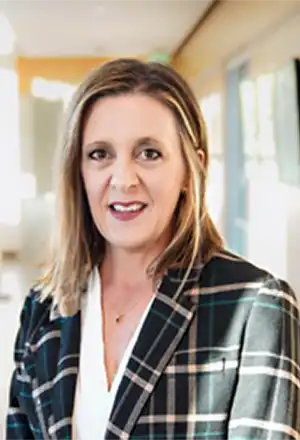 In July 2017, Christiane Farrell was appointed to the position of assistant town administrator. Since then, she has assisted the town administrator with the general management of the town and oversees the Department of Planning, Land Use & Neighborhoods, Communications Office, Economic Development Office, Emergency Management Office, Human Resources Department, Risk Management Office and Town Attorney’s Office.
In July 2017, Christiane Farrell was appointed to the position of assistant town administrator. Since then, she has assisted the town administrator with the general management of the town and oversees the Department of Planning, Land Use & Neighborhoods, Communications Office, Economic Development Office, Emergency Management Office, Human Resources Department, Risk Management Office and Town Attorney’s Office.
Courtney Soler, City Administrator of Hanahan (2022-present)
After graduating from the College of Charleston with a degree in accounting, Courtney Soler joined the City of Charleston Police Department as an officer. While working with CCPD, she became their first budget analyst, managing a $40 million dollar budget.
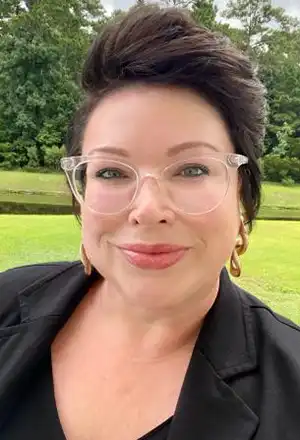 Soler became the City of Hanahan’s first finance director in 2010. It was during that time that she discovered Hanahan was the perfect place to raise the family’s three children.
Soler became the City of Hanahan’s first finance director in 2010. It was during that time that she discovered Hanahan was the perfect place to raise the family’s three children.
In 2016, Soler accepted a position as the chief financial officer of the Gibbes Museum of Art. Although she enjoyed being part of such a historical and cultural institution, her heart was still in Hanahan. In 2020, Soler returned to the City of Hanahan as its chief financial officer and in 2022 was promoted to city administrator.
Soler’s vision for the city is to promote a positive and innovative work environment for staff and to encourage a culture that is centered on citizens and community. The values of integrity, inclusivity, kindness, accountability and transparency that are showcased in each department are what she said makes Hanahan a special place.
Tiffany Johnson-Wilson, Summerville Town Council (2024-present)
 As a member of Summerville’s Town Council, Tiffany Johnson-Wilson has a passion for philanthropy. Having served as a founding member on the board of directors of The Palmetto House homeless shelter, where she also assisted in counseling and rehabilitation, she has accumulated extensive volunteer hours with One80 Place. Johnson-Wilson has also contributed to Lowcountry Local First and loves supporting other nonprofits such as Habitat for Humanity and South Carolina Community Loan Fund. Additionally, she has served on local boards such as The Sustainability Institute, where she brings green initiatives to her construction and development companies for the betterment of local communities and the world. Johnson-Wilson founded Home of Hope, is a Paul Harris Fellow with Rotary International and is a state mediator and guardian ad litem. Additionally, she sits on the National Association of Realtors legal committees for Grievances and Professional Standards, where she aims to promote justice and fairness.
As a member of Summerville’s Town Council, Tiffany Johnson-Wilson has a passion for philanthropy. Having served as a founding member on the board of directors of The Palmetto House homeless shelter, where she also assisted in counseling and rehabilitation, she has accumulated extensive volunteer hours with One80 Place. Johnson-Wilson has also contributed to Lowcountry Local First and loves supporting other nonprofits such as Habitat for Humanity and South Carolina Community Loan Fund. Additionally, she has served on local boards such as The Sustainability Institute, where she brings green initiatives to her construction and development companies for the betterment of local communities and the world. Johnson-Wilson founded Home of Hope, is a Paul Harris Fellow with Rotary International and is a state mediator and guardian ad litem. Additionally, she sits on the National Association of Realtors legal committees for Grievances and Professional Standards, where she aims to promote justice and fairness.
County Level
Mary Tinkler, Charleston County Treasurer (2017-present)
 Having managed her father Paul Tinkler’s South Carolina Senate race in 2012, Mary Tinkler remained closely involved in local politics before deciding to run for the South Carolina House of Representatives in 2014. She won and served for two years, representing parts of Charleston and Dorchester counties.
Having managed her father Paul Tinkler’s South Carolina Senate race in 2012, Mary Tinkler remained closely involved in local politics before deciding to run for the South Carolina House of Representatives in 2014. She won and served for two years, representing parts of Charleston and Dorchester counties.
In November 2016, Tinkler ran for Charleston County Treasurer and won, becoming the county’s first female treasurer. Tinkler’s win was also the second time that she was the only Democratic pick-up statewide. Since being sworn in on July 1, 2017, she has implemented the Advance Tax Installment Plan; successfully advocated for tax law changes in Columbia; grown an outreach program; and begun to issue motor vehicle decals and registrations from her office while adding new ways to pay including credit cards at the counter, e-checks online with no fee and over-the-phone payments with bilingual service. She is now serving in her second term.
In addition to leading her office, Tinkler serves as the president of the South Carolina Association of Auditors, Treasurers and Tax Collectors. She sits on the board for the National Association of County Collectors, Treasurers and Finance Officers, as well as on the board for the National Association of Counties and Society 1858 of the Gibbes Museum of Art.
State Level
Across the South Carolina state house and senate there are 170 members of the General Assembly, of which currently only 22 are women. To take on the role of governance within this framework is as rewarding as it is challenging, according to the following women whose legacies will leave a lasting imprint on our past, current and future legislation.
Vida Miller, State House Representative (1996-2010)
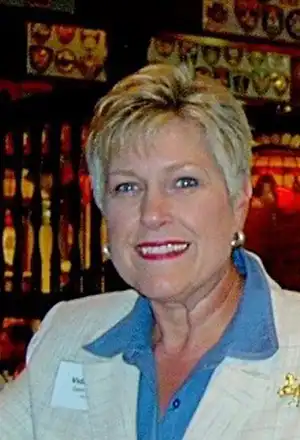 Governance was always in Vida Miller’s DNA. She grew up in Greenville during the 1960s, where her parents were involved in local politics, serving as poll watchers and precinct managers and running for public office. Her family was also good friends with former South Carolina Lieutenant Governor Nick Theodore and then Speaker of the House Rex Carter.
Governance was always in Vida Miller’s DNA. She grew up in Greenville during the 1960s, where her parents were involved in local politics, serving as poll watchers and precinct managers and running for public office. Her family was also good friends with former South Carolina Lieutenant Governor Nick Theodore and then Speaker of the House Rex Carter.
In her 20s, Miller moved to the Lowcountry, where she taught a marketing class at Horry-Georgetown Technical College. “I remember being upset because I wished students had more skills than they did,” she said. “And frustrated with a system I thought had failed them, I kept searching for the missing link.”
Looking for a way to make a difference, Miller ran for the Georgetown County School Board in 1986. Having won the election, she served for eight years, during which time Georgetown County was supported primarily by the farming community, which produced tobacco and cotton. “Until the early 1990s, all leaders and money came from the crops produced in the West County,” Miller explained. “Although we did not have the tax base on the Waccamaw Neck and it was a financial risk, we borrowed and bonded money to expand the district by building Waccamaw High School. A middle and intermediate school followed, and those schools became some of the top in the state. That’s a lot to be proud of.”
When she came off the board in 1994, running for higher office was not in Miller’s vision. That changed when the chairman of the Democratic Party asked her to consider campaigning for House District 108, which represents one of the largest geographical regions in the state. The region stretches from Murrells Inlet to the City of Georgetown, McClellanville, Awendaw and North Mount Pleasant. Miller stepped up to the challenge and in 1996, she ran, won and served for 14 years.
Miller started by helping pass a state bond referendum, which earned $100 million for state schools, from which Charleston and Georgetown counties benefited. Locally, that meant the recently-founded Waccamaw Neck schools had enough funding so that they no longer posed the financial risk they had just a few years earlier.
Additionally, Miller helped pass the South Carolina Education Lottery, which funded grants for teachers and allocated $3,500 to $5,000 scholarships for students with a 3.5 GPA or higher to credit towards attending state colleges or universities.
Further, Miller was instrumental in having the Confederate flag removed from the South Carolina State House. “Most people don’t realize that flag went up in the 1960s but it was never there before that,” she said. “Even during the Civil War, only state and USA flags were flown at the Capitol. The legislature compromised, allowing it to stay in a fenced-in area on the State House grounds until after the Charleston massacre when it came down completely.”
For women who are interested in running for office, Miller’s advice is “Just do it.” But she cautioned, “You are away from home a lot and have to be in Columbia three or more days a week. Even when you’re not in session, you have a full calendar with meetings and events to attend every day. Talk it over with family, make sure everyone is on board and that everything is organized.”
Miller, who never ran without opposition, added, “There is a lot to take into consideration. The longer I stayed in government, the uglier the campaigns became, so be prepared. Women get attacked at a different level than men. Although we raised a lot of campaign contributions, it’s not the same amount of money as men.”
Yet the return is significant, Miller said. “I still have people say, ‘I’ll never forget the time you helped me.’ It warms your heart when you realize you really did make a difference.”
Mia McLeod, State Senator (2017-24)
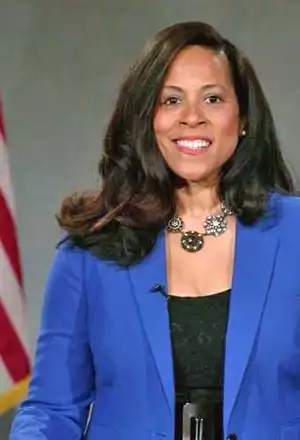 As an eighth-generation South Carolinian, Mia McLeod’s ancestry is tied to Charleston, where her great-great-grandfather, Joseph W. Morris grew up as a “nominal” slave, meaning his parents purchased their son to keep him out of the traditional slave trade. In 1876, Morris was nominated to serve in the state legislature, and although this would have been an incredible achievement, Morris declined so that he could finish his law studies at the University of South Carolina.
As an eighth-generation South Carolinian, Mia McLeod’s ancestry is tied to Charleston, where her great-great-grandfather, Joseph W. Morris grew up as a “nominal” slave, meaning his parents purchased their son to keep him out of the traditional slave trade. In 1876, Morris was nominated to serve in the state legislature, and although this would have been an incredible achievement, Morris declined so that he could finish his law studies at the University of South Carolina.
Because McLeod’s father wanted her to understand how the state legislature works, her first job as a college student in 1987 was serving as a page in the South Carolina House earning $5 an hour. Then in 1990 and 1995, she followed in her great-great-grandfather’s footsteps and graduated from the University of South Carolina, where she earned a B.A. and J.D., respectively.
After graduating law school, she learned that South Carolina was number one in the nation for women who are murdered by men as a result of domestic violence. In 1996, McLeod became the first statewide director of former Attorney General Charlie Condon’s Violence Against Women Project. She and her team launched the state’s first Silent Witness program in 1997 and wrote the protocols and curricula for police, prosecutors, judges and victim advocates to use when investigating, prosecuting and adjudicating domestic violence, sexual assault and stalking crimes. Attorney General Alan Wilson continues to hold the state’s annual Silent Witness Ceremony on the State House grounds and the protocols and curricula that were adopted by the SC Criminal Justice Academy in the late 90s continue to serve as the foundation for today’s Violence Against Women public policy initiatives.
When then House District 79 Rep. Anton Gunn announced in 2010 that he was accepting a presidential appointment in the Obama Administration and would not be seeking re-election, he asked McLeod if she knew anyone who would run for his seat.
“I never planned to run for office,” McLeod said. “When I decided to throw my name in the hat, I had no elected experience or knowledge about campaigns. It was important to me that I lead with authenticity, so I started the way I planned to finish, with honesty and integrity, letting voters know exactly what they were getting.”
At the time, District 79 was one of the fastest growing swing districts in the state and McLeod faced significant challenges when her swing district was gerrymandered and neither her House Caucus nor state party decided to fight it.
Despite the obstacles McLeod faced, she won the election. While serving in the SC House of Representatives, Speaker Jay Lucas appointed McLeod to the House’s Domestic Violence Advisory Committee, where she continued to build upon the statewide Violence Against Women initiatives and became one of the legislature’s strongest voices for domestic violence survivors, victims and their families. McLeod was the first woman elected to House District 79 and later became the first woman and African American elected to represent Senate District 22. Both districts represented Richland and Kershaw counties. Despite opposition from her own party, McLeod never lost a House or Senate race in 14 years.
On June 3, 2021, McLeod announced her candidacy for the 2022 South Carolina gubernatorial race. The story about the first Black woman to run for governor of South Carolina generated national and international headlines. In 2023, McLeod publicly left the South Carolina Democratic Party and became an Independent. That year, she and her ‘sister senators’ later received the John F. Kennedy Profile in Courage Award.
Retracing her great-great-grandfather’s footsteps in resilience and tenacity, McLeod’s legacy has come full circle and lives on in the work she has done to disrupt the status quo, lead with courage and authenticity and fiercely advocate for all South Carolinians.
Spencer Wetmore, State House (2020-present)
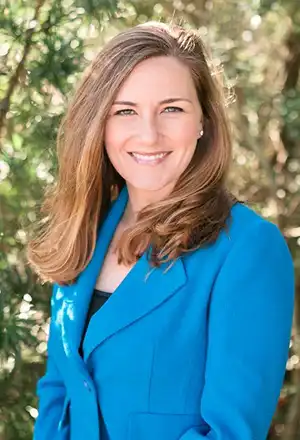 A graduate of Princeton University and Vanderbilt University Law School, Spencer Wetmore began her career in public service as a prosecutor for the Charleston County Solicitor’s Office where she represented the people of South Carolina in criminal cases. In 2014, Wetmore became an advocate for the City of Folly Beach, overseeing all aspects of local government with a focus on environmental issues such as flooding and marsh protection. “I wish that before running for higher office at the state or federal levels, more legislators would start in local governance,” said Wetmore. “Working with budgets and ordinances demonstrates that lawmakers are taking a real interest in relating to their communities.”
A graduate of Princeton University and Vanderbilt University Law School, Spencer Wetmore began her career in public service as a prosecutor for the Charleston County Solicitor’s Office where she represented the people of South Carolina in criminal cases. In 2014, Wetmore became an advocate for the City of Folly Beach, overseeing all aspects of local government with a focus on environmental issues such as flooding and marsh protection. “I wish that before running for higher office at the state or federal levels, more legislators would start in local governance,” said Wetmore. “Working with budgets and ordinances demonstrates that lawmakers are taking a real interest in relating to their communities.”
A mom of young kids, Wetmore is also passionate about keeping schools and neighborhoods safe. As Wetmore started building relationships at the state level, she was encouraged to run for the House of Representatives as a voice for women and families. In August 2020, she campaigned on making the community safer and won a special election that made national headlines for flipping a seat in the gerrymandered District 115, a longtime Republican stronghold. She won again in November 2020 and has loved representing her constituents ever since her first day in office.
One challenging part of the job, she acknowledged, is that while Congress members are paid $170,000 a year, legislators in the SC House of Representatives earn just $10,000 a year plus a per diem. That means Wetmore and her husband still maintain their law firm, where they practice criminal defense and probate law. She added that another issue with state-level government in South Carolina is, “Our politics are determined by just 9% of South Carolinians who vote in the Republican primaries. The majority of seats that are gerrymandered are decided by those Republican primary elections.”
When asked how she overcomes frustration within the super minority of women and Democrats in the state legislature Wetmore replied, “I stay energized by focusing on my constituents and their concerns and using my microphone as their platform.”
Self-described as “Built for problem-solving and empathy,” Wetmore said she is most proud of the bills she is working on that have to do with local governance, including smart growth and infrastructure to offset overdevelopment, as well as legacy issues such as human trafficking and domestic violence. She also helped pass a unanimous bipartisan bill, H.3497, that helps bars and restaurants access liquor liability insurance relief. “Over the last couple of years, this issue has reached a breaking point with so many establishments closing due to premiums skyrocketing from thousands to hundreds of thousands of dollars,” she said. “Bars and restaurants need relief now. We shouldn’t hold them hostage.” As of this writing, the full House had approved the bill and it was awaiting a Senate floor vote. According to Wetmore, it has until May 2026 to be decided.
She concluded, “I hope the challenges we are overcoming during my tenure will live on well beyond my service.”
Kathy Landing, State House (2022-present)
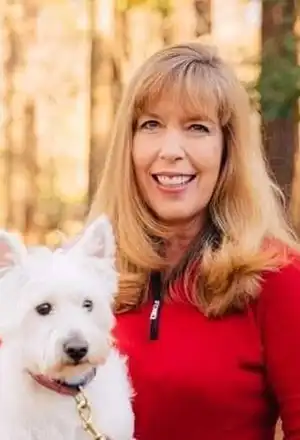 Elected to the Mount Pleasant Town Council in 2017, Kathy Landing also served as the chair of the town Economic Development Committee as well as the Fire, Transportation, Flood Resilience, Public Services, Bids & Purchases, Human Resource and Finance committees of council. As part of her commitment to economic development and supporting local job-creating businesses, Landing held a position for several years on the board of directors of the Charleston Metro Chamber of Commerce and on the board of the Charleston Area Convention and Visitors Bureau. In 2022, Landing ran as a Republican for the new SC State House District 80 and won.
Elected to the Mount Pleasant Town Council in 2017, Kathy Landing also served as the chair of the town Economic Development Committee as well as the Fire, Transportation, Flood Resilience, Public Services, Bids & Purchases, Human Resource and Finance committees of council. As part of her commitment to economic development and supporting local job-creating businesses, Landing held a position for several years on the board of directors of the Charleston Metro Chamber of Commerce and on the board of the Charleston Area Convention and Visitors Bureau. In 2022, Landing ran as a Republican for the new SC State House District 80 and won.
A top issue for Landing’s district is traffic congestion. “Crowded roads lead the list of concerns here in Mount Pleasant,” she said. “I have worked hard with council and staff to address this problem through several different means. Infrastructure improvements including new roads, widening and better intersections are a major part of keeping traffic flowing throughout Mount Pleasant.”
Additionally, Landing said she is passionate about the environment. “I oppose offshore drilling off the South Carolina coast entirely and without qualification. We need to work hard to encourage innovative private sector solutions to carbon reduction like increasing energy production from natural gas, solar and other sustainable sources. In the public sector, common-sense solutions such as gravity-based drainage for flood-prone areas, encouraging planting more vegetation especially trees and other initiatives add up to a much safer and cleaner environment over time.”
Landing added that another important factor in her work is education. “Mount Pleasant public schools are the best in the state, which is a huge part of why so many people want to live here. Sadly, our teachers’ pay in South Carolina has lagged woefully behind the cost of living not only here, but throughout our state and not kept up with the level of education and expertise needed in today’s classroom. We need to raise teacher pay and bring more transparency to what is being taught to reinstate parents’ confidence in what their children are learning. Children need to learn the basics of reading, writing and STEM to incorporate not only science and math but also technology including coding.”
She continued, “And we need to greatly promote technical schools so that those children who want to learn a much-needed trade such as electrician, plumber, welder and many others can do so proudly. This could help slow the outrageous inflation of college costs. Money should follow the child in the classroom so that teachers will have the resources necessary to do their job properly.”
Landing concluded, “I believe in limited government and in personal responsibility. As a council member I have voted against arbitrary rules, mandates and prohibitions. As your South Carolina State House Representative, I will stand to empower our citizens instead of suffocating them with rules and mandates. I will always protect the rights of our citizens, never forgetting that I am serving the public, not seeking to rule the public. I believe in the innate common sense and goodness of the citizens of Mount Pleasant and the State of South Carolina.”
By Sarah Rose